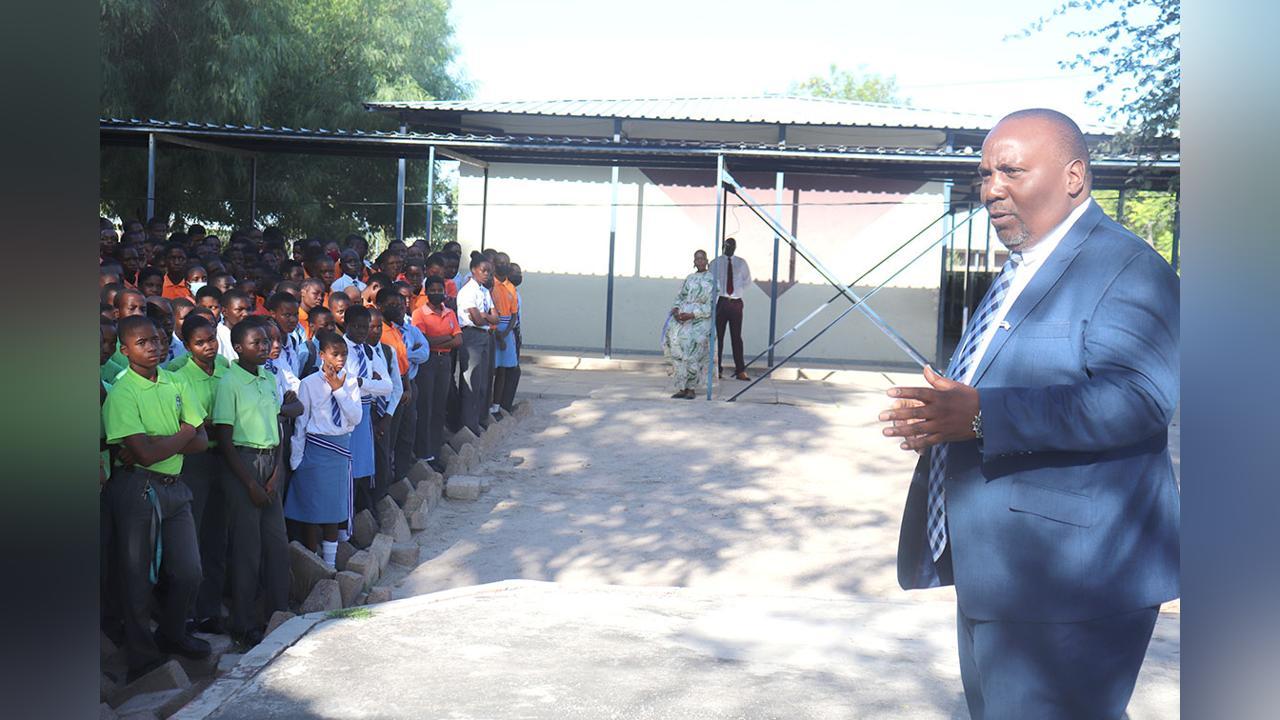Africa-Press – Lesotho. Digitilisation is not only crucial in transforming the teaching and learning process, but also a solution to shortage of textbooks. The advantages of fourth industrial revolution include no need for setting up any infrastructure or building, except for having computers, connectivity and the right mindset.
The Minister of Education and Skills Development, Dr Douglas Letsholathebe, said during a meeting with Rakops Junior Secondary School teachers recently. He said digitalisation was also in-line with Sustainable Development Goal number four, which called for relevant education of children.
“We need to produce a 21st century learner and to have a 21st century learner, we need a 21st century ministry, permanent secretary, director and teacher,” he added.
He stated that it was crucial to have smart schools and to achieve that, curriculum should be changed, the pedagogy of presenting curriculum and assessment should all be transformed.
Dr Letsholathebe said he was aware of the challenges teachers were faced with, urging them to ensure that digitalisation was implemented in schools. He called for change of mindset, indicating that it could only be achieved if schools were empowered.
The minister further stated that he did not see the reason why teachers had to be in school during school holidays, however he said teachers should not take leave days during school calendar days.
He also stated that re-tooling and up skilling of teachers was very important, urging them to take advantage of laptops they would be allocated. For his part, Rakops JSS head, Mr Christopher Mudala, expressed concerns regarding shortage of classrooms saying they were a 30 stream school with 859 pupils.
He stated that they had 15 classrooms and had a shortfall of 14, adding that there was also shortage of laboratories. The effectiveness of teaching and learning, he said, was not upheld due to the challenges faced.
Mr Mudala also complained they did not have transport though they were a boarding school. He also expressed concern that there was shortage of furniture saying all form one classes did not have desks.
The school head also proposed that pupils from Xere should be placed in schools distant from their home village as they absconded from school. The school fence, Mr Mudala said, was dilapidated something that led to wild animals such as elephants gaining entrance in the school disturbing teaching and learning process.
The teachers’ representative, Ms Chookula Ramashaba, complained that the school workload was too hefty for teachers, saying they were supposed to have six classes as a maximum, but other teachers had seven.
Ms Ramashaba said progression was also a challenge, adding there were no promotions as well as delay in payment of temporary teachers. She proposed for procurement of porta cabins to address the issue of shortage of classrooms.
In response the director of education, Central Region, Mr Sane Mooketsi, said progression took place after completing at least two years. Mr Mooketsi stated that in terms of recommended work load for teachers, the standard was 40 periods, citing that the most crucial issue was contact time between the teacher and pupils. He stated that when allocating vehicles, boarding schools were prioritised, saying they had requested vehicles for the coming financial year.
For More News And Analysis About Lesotho Follow Africa-Press






